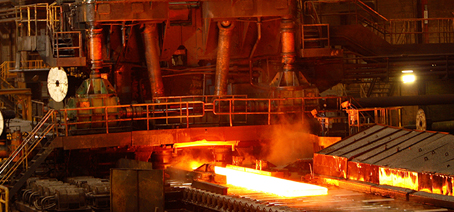Tips for more sustainable use of lubricants
There are so many different types of lubricants and ways of using them, that are more or less sustainable. So we’d like to share our knowledge and a few tips and recommendations that are worth considering.
Perhaps there’s something of value for you and your business? If you have any questions or need help, please contact us.
With biodegradable PLANTO, virtually everyone can be more sustainable
We increasingly hear our customers expressing a strong desire to develop their business in a more sustainable direction and become fossil-free. We also hear that it can be hard to find sustainable alternatives, as well as concerns that sustainable products could lead to lower performance. In fact, the opposite is true.
Close collaboration with SSAB led to a new, biodegradable hydraulic fluid for industries with advanced hydraulic systems
Swedish steel giant SSAB was phasing out coal from its steel operations, and also wanted to change to more environmentally sustainable lubricants – so they contacted FUCHS. The close partnership led to a unique, biodegradable hydraulic fluid for the steel industry and hydraulic systems.
What makes a product sustainable?
By now most people understand the importance of sustainability, and the fact that the products we produce and use have the lowest possible impact on our climate and environment. But what is it that determines how sustainable a product is? In the lubricant industry, there is currently no standard for classification of a sustainable product, but here at FUCHS we would like to change that.
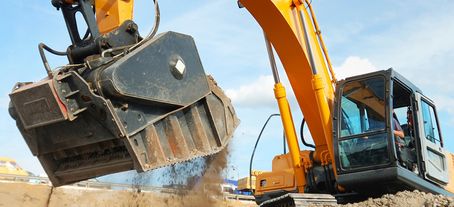
Environmentally adapted lubricants with top-level performance
Nowadays there are many environmentally adapted lubricants that offer top-level performance. These products are an everyday feature in large parts of the forestry industry, and the construction industry is going the same way. To meet demands and win new business, it is key to have the right lubricants in the hydraulics.

Lubricate right and save energy
Energy efficiency goes without saying in many companies – in fact it may even be a government requirement. And smarter lubrication can make a big difference. The right products and routines save energy, while also assuring the technical performance of the machinery.

Waste – an ingredient in future lubricants
Waste could be the key to smarter production and lower environmental impact. That’s because some types of waste can be used to produce lubricants – a new approach that can save both money and the environment.
Why do we talk so little about the opportunities of heavy vehicles when it comes to environmental matters?
Talking positively about vehicle lubricants, heavy goods traffic and the environment may not seem completely natural, but it’s definitely something we should be better at. Partly because the level of different kinds of emissions has actually already improved significantly over the years, and partly because there are major gains to be made by anyone who has heavy vehicles to lubricate.

Better cooling with lower environmental impact
Gone are the days when we had to salt our food or cover it with ice blocks to make it keep longer. Nowadays, we take it for granted that we can keep food cold in the fridge at home or in the supermarket, and keep ourselves cool on hot days at work or in the car. However, these cooling systems have also come at a price, in the shape of environmental impact.
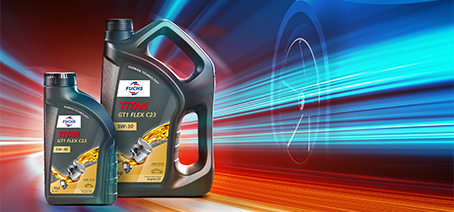
Easy to choose, easy to use
The range of oils for the automotive industry is huge. When it comes to oil for your vehicle, you don’t want to spend a lot of time researching or dealing with complex labels and descriptions. Instead, you want all relevant information at a glance. And you want a product that’s easy to use and to pour. With the redesign of our small packs and labels, we give you best possible orientation and guidance. Choosing and using the right oil has never been so easy!

Climate compensation – buying our innocence?
Climate compensating as a way of reducing environmental impact is nothing new, and most of us have come across the issue in one way or another. Recently, however, questions have started to be asked about how well the method actually works. Is it just a way of buying innocence? Personally, I think we should all be grateful that the effects of climate compensation are being scrutinised. It should be in everyone’s interest that efforts in this area are actually doing some good. This is our thinking.

Rationalise your compressed air processes and reap the benefits
Do you use compressed air anywhere in your business? If you work in industry, the answer is most probably yes. Around 70% of industrial companies in Europe use compressed air in some part of their operation. That’s so much, that roughly 10% of all industrial electricity is used just to generate compressed air. In Europe alone. But this is a figure that can be reduced…
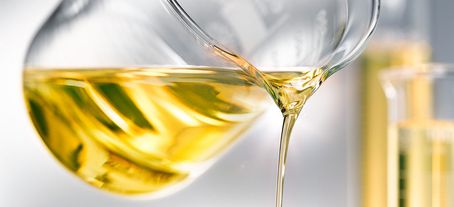
Choose the right viscosity – save energy, money and the environment
In my job, I visit a great many industrial companies every year, in different sectors. One thing I’ve noticed is that most of them still use older types of lubricant of unnecessarily high viscosity. Few seem to know that the right viscosity is the simplest key to greater energy efficiency. Do you know what viscosity you have in your machines?

Lubricate right – increase energy efficiency
Greater energy efficiency and lower costs. These are just two of the goals of the energy mapping that large companies must now perform. Smarter lubrication can also further increase energy efficiency.

How lubricating oil became clean tech
Environmentally adapted lubricants are available in many areas and are advanced clean tech. Degradable and renewable have been key words in the development journey that began 30 years ago and paved the way for many high-performance products.
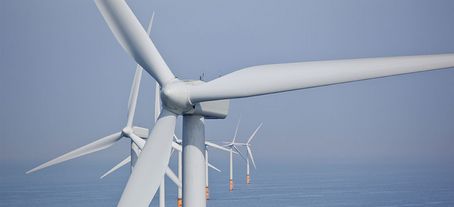
How to make wind power even greener
Oil leaks from wind turbines can pollute soil and water. However, this can be avoided by using green lubricants where possible. They cause no pollution and degrade naturally if they leak.
Did you know that changing from mineral to synthetic oil can save energy, money and the environment?
There is much to be gained by choosing the right type of lubricant. In fact, the gains could be huge if you change your mineral oil for a fully synthetic lubricating oil. Let’s look at an example: If you have 80 gears, with an average output of 35 kW and an operating time of 8,000 hours – you could save as much as € 12,280. Every year. This is due to less energy loss and less work input. At the same time, you reduce your CO2 emissions by over 10,000 kg a year. So for once, it’s actually very easy to do the right thing.
You can find out more about energy efficiency and viscosity here.
Did you know that biodegradable hydraulic oils often provide better performance?
Most people realise that biodegradable products have less of an environmental impact in the event of a spill or leak. But not everyone knows that many environmentally adapted hydraulic oils also offer better technical properties than the ones based on mineral oils. They have a longer life span. They are better at separating air and water. They can handle a wider temperature range. And they have better solubility, which means you avoid problems with varnish.
Want to find out more about environmentally adapted lubricants?
Did you know that the right hydraulic oil decreases energy loss?
Therefore, choose an oil with the right properties, especially in terms of viscsity. An oil with lower viscosity is easier to "pull" around the hydraulic system, thus reducing energy loss and saving money. Many people choose a high-viscosity oil out of habit, but this is an area worth reflecting on to achieve improved lubrication and lower costs.
For more tips, read our blog post about hydraulic fluids.


